JICUF Grantee Spotlight: Okinawan Identity Formulation Through Craft Beer by Runa Oshiro
JICUF awards grants to students, faculty and alumni of ICU to support projects that focus on sustainability, DEI (diversity, equity, inclusion) and peacebuilding. In the 2022-23 academic year, applications were reviewed three times in the spring, fall and winter terms, and a total of 37 projects were funded. Today we introduce Runa Oshiro, a student who was awarded the JICUF grant in the spring term of 2022.
Runa graduated from ICU’s College of Liberal Arts and went on to pursue a master’s degree in public policy and social research in the ICU Graduate School. She applied for a grant to conduct field research for her master’s thesis. The title of her thesis is “Brewing Okinawan/Uchinaanchu Identities: A Qualitative Analysis of Okinawan Identity Formation Among Craft Brewers in Okinawa.” The title is a little intimidating, but she explores how Okinawan identity is expressed and transmitted through craft beers. Runa is from Okinawa. Making and selling “Sata Andagi,” an Okinawan fried snack, with other students from Okinawa at the ICU Festival made her scrutinize her identity as an “Uchinaanchu (Okinawan).” Moreover, meeting Greg Lam, a Canadian producer who was filming a documentary on “being Japanese” when she returned to Okinawa during the pandemic made her think further about her two identities: “Japanese” and “Uchinaanchu.”
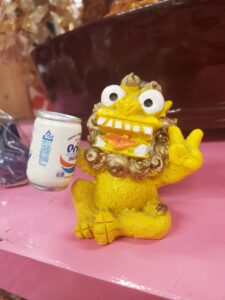
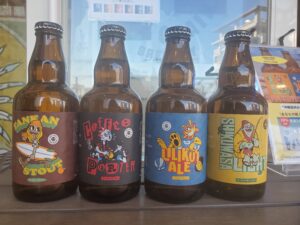
When I asked her why she decided to focus on craft beer for her thesis, Runa answered, “Because I love beer!’ It makes sense to do research on what you love. Runa has studied abroad on several occasions, beginning with a homestay in Hawaii through a program run by Okinawa Prefecture when she was in middle school. In high school, she went on short-term programs in Montana, USA, and Germany. While in Germany, she tasted beer for the first time. (In Germany, it is legal to drink from age 16.) She did not think it tasted particularly good then, but she grew to like it more recently, due to the influence of her beer-loving roommate. “Looking back now, I should have enjoyed more beer when I was in Germany!” says Runa.
There are 11 breweries in OKinawa across the main island, Ishigakijima, and Miyakojima. Runa visited seven of them for research. Apart from Orion Breweries, Ltd., a major brewery, the others were all small-sale and brewed beer that was rooted in the local community. Some of them were started by non-Okinawans like Germans or mainland Japanese. Strictly speaking, their products may not be “local brew” if “local brew” is defined as “beer made by local people.” However, if outsiders came to Okinawa, fell in love with the land, built breweries to create employment, and their beer came to be loved by locals and tourists alike, it bears the marks of a “local brew.” From the interviews that Runa conducted with brewers, the comments that stuck with her the most were “It doesn’t matter how much we sell” and “beer from the ground up.” The first comment expressed the brewer’s desire to create a true Okinawan beer even if it did not lead to big profits, and the second their determination to craft a beer from the grassroots.
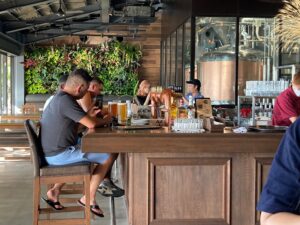
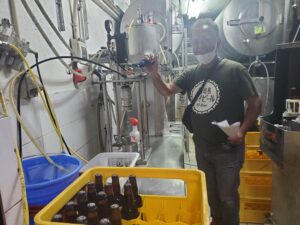
Through her field trip to Okinawa, Runa not only studied people’s identities through Okinawan beer, but also her own identities as Uchinaanchu and Japanese. Having completed her studies at ICU this spring, Runa started working for EF Education First Japan, the Japanese arm of one of the world’s largest private education companies. She hopes to work on a program that invites students from overseas to study in Okinawa. Her new job seems perfect for someone who explored her own identity from the micro level to the macro level. We look forward to her future endeavors.
We end with a comment from Runa.
“So many people made my student life at ICU meaningful. In particular, the wonderful friends I met in the dorm are like my family and supported me throughout my time there. We have all embarked on our own journeys, but I hope that we can meet five, ten years from now, enjoy a beer together, and celebrate our growth.”
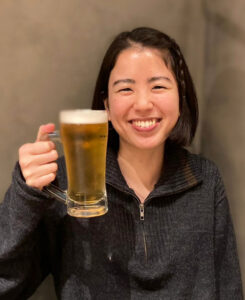
Ms. Runa Oshiro



